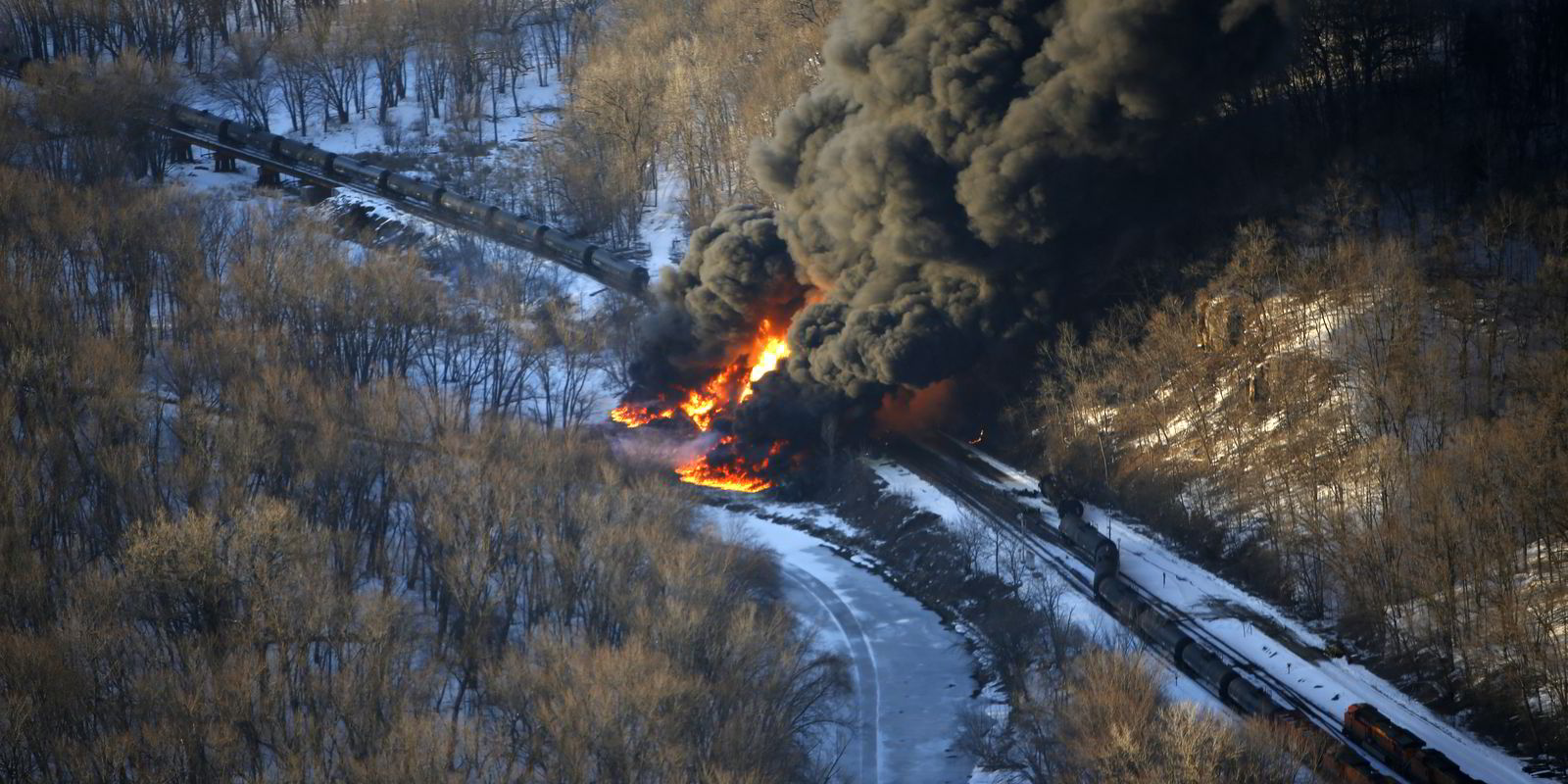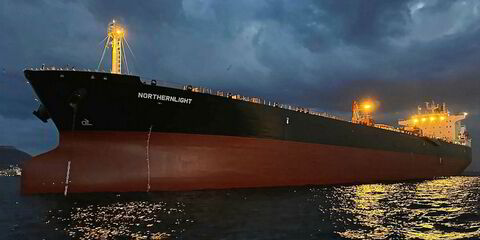In client briefing published Monday morning Erik Nikolai Stavseth pointed out that three trains have derailed within the last four weeks.
The forecaster noted that the most recent incident involved 30 railcars. Of these, which represent roughly one-third of the total count, several caught fire.
“The number of derailments on crude-by-rail has increased along with crude production, both in US and Canada, leading to higher safety standards, which is contributing to a higher cost level for land-locked crude volumes,” Stavseth continued.
“We see the increased focus on safety standards on rail as a positive for Jones Act as part of the volumes hitting the US East Coast have been supplied from Bakken and Canada by rail.
“The combination of lower bunker prices for vessels, higher costs due to increased standards on rail and a wide Brent/WTI spread as well as high demand in Northeast US should be a positive for Jones Act in the near-term.”
While the analyst acknowledged that the Jones Act is not a “near-term” market, he said the situation underpins the fact that the strength of day rates for tonnage involved in the coastwise carriage of US crude could continue for longer than previously expected.



